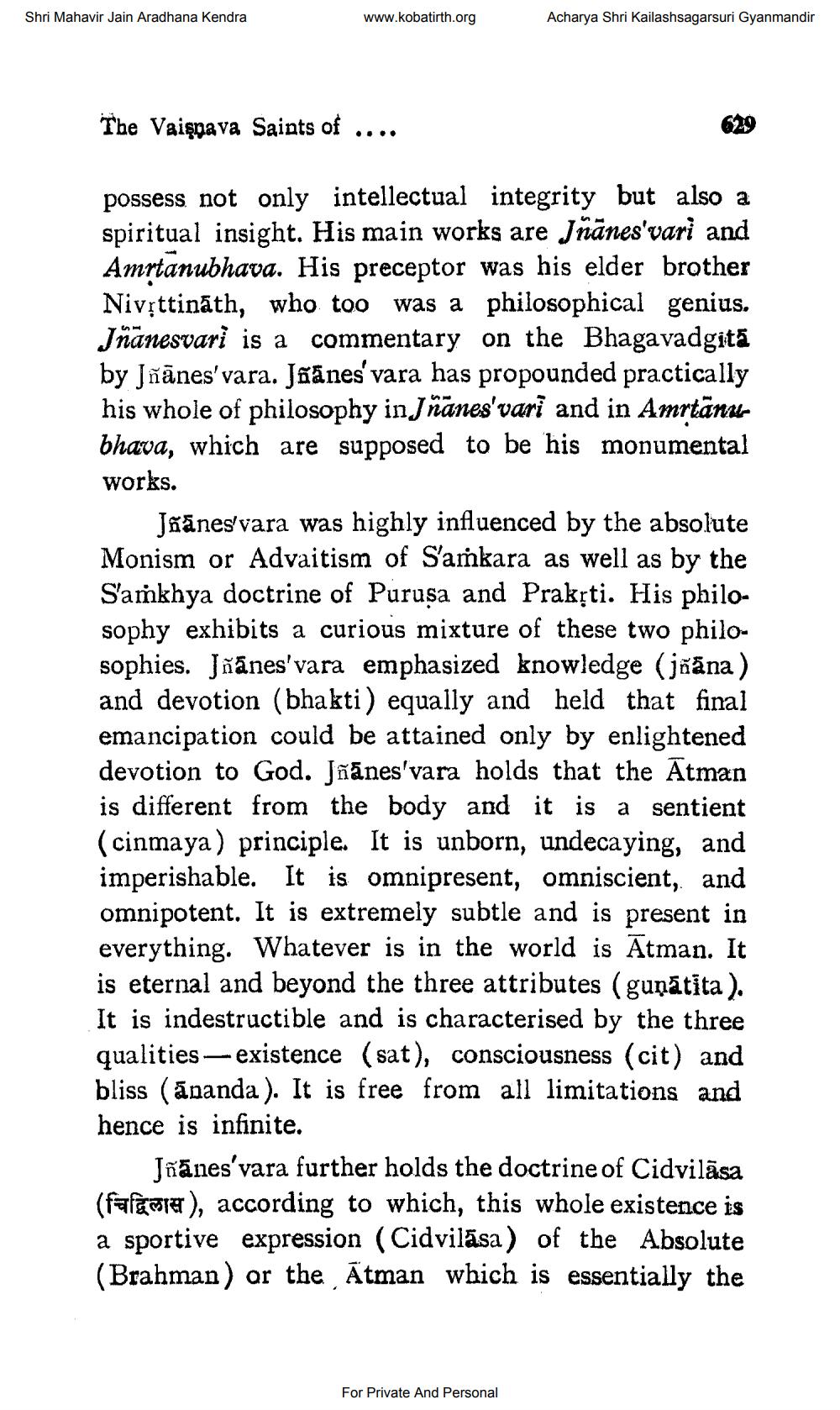________________
Shri Mahavir Jain Aradhana Kendra
www.kobatirth.org
Acharya Shri Kailashsagarsuri Gyanmandir
The Vaişpava Saints of ....
possess not only intellectual integrity but also a spiritual insight. His main works are Inānes'vari and Amrtanubhava. His preceptor was his elder brother Nivịttināth, who too was a philosophical genius. Jñanesvari is a commentary on the Bhagavadgitá by Jñānes'vara. Jäänes' vara has propounded practically his whole of philosophy in Jnanes'vari and in Amrtāns bhava, which are supposed to be his monumental works.
Jžānes vara was highly influenced by the absolute Monism or Advaitism of Samkara as well as by the Samkhya doctrine of Purusa and Praksti. His philosophy exhibits a curious mixture of these two philosophies. Jñānes'vara emphasized knowledge (jñāna) and devotion (bhakti) equally and held that final emancipation could be attained only by enlightened devotion to God. Jñanes'vara holds that the Atman is different from the body and it is a sentient (cinmaya) principle. It is unborn, undecaying, and imperishable. It is omnipresent, omniscient, and omnipotent. It is extremely subtle and is present in everything. Whatever is in the world is Ātman. It is eternal and beyond the three attributes (gunātīta). It is indestructible and is characterised by the three qualities - existence (sat), consciousness (cit) and bliss (ānanda). It is free from all limitations and hence is infinite.
Jñānes' vara further holds the doctrine of Cidvilāsa (falemmer), according to which, this whole existence is a sportive expression (Cidvilása) of the Absolute (Brahman) or the Atman which is essentially the
For Private And Personal




